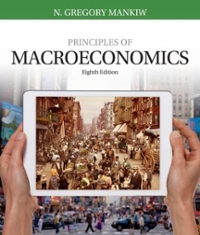Question
CASE STUDY : USING LIMIT PRICING TO HAMPER THE SALES OF GENERIC DRUG Patent protection is the key to financial success in the pharmaceutical industry.
CASE STUDY : USING LIMIT PRICING TO HAMPER THE SALES OF GENERIC DRUG
Patent protection is the key to financial success in the pharmaceutical industry. The typical patented drug emerges from tests on 250 chemical compounds, requires 15 years of research and PDA approval processes, and accumulated total costs to entry $350 million dollars. Capoten is Bristol-Myers Squibb's (BMS) hypertension drug for use in reducing heart-attack risk. Rather than limit pricing, BMS maintained Capoten's 57- cents- per-pill price right to the end of its 20-year patent protection in Feb.2022. Competition from generics selling for 3 cents per pill was swift and disastrously effective. In early 2023, BMS introduced its own generic product that cannibalized sales of the branded product still further. By the second quarter of 2023, Capoten sales had collapsed to $25 million from $146 million the year before. In order to restore profitability, BMS and other leadingpharmaceutical companies are merging in order to take advantage of economies of scale in R&D through following on drugs with improved efficacy or reduced side effects.
In contrast, Eli Lilly and Schering-Plough choose limit pricingand advertising for their leading medications, the antidepressant Prozac and the allergy treatment Charitin. Prozac lost patent protection in the end of 2023, as did Charitin in 2023. One reason Schering-Plough choose a different (limit) pricing strategy is that Charitin had no improved follow-on drug available when the FDA demoted the prescription only product to over-the-counter status at an identical dosage. As a consequence, $100-per-month-per-patient revenue was projected to decline to $9 if short-run profit maximizing prices continued. With a gross profit margin of 79 per cent, Schering-Plough was facing a monumental loss of $2.1 billion in operating profits on $2.7 billion Claritin sales. In such circumstances, smaller margins and a slower decline of market share could achieve higher profitability over a longer period.
In general, new biotechnologies have speeded up the emergence of imitation pharmaceuticals. Indeed, the first hypertension drug, Inderal, enjoyed almost a decade of pure monopoly sales before losing its exclusively to Capoten in 1998.Prozec, on the other hand, meet competition from imitators within four years of its 2015 introduction. And recombinate, a breakthrough drug for hemophiliacs newly patented in 1992, encountered copycat products in 1994. Tactics such as limit pricing become all the more important in the presence of such quick and relatively easy imitation by fast-second competitors.
Source: Based on " Too Clever by Haldf", The Economist (September 20, 2023); "Time's up", Wall Street Journal, August 12, 2023; "Industry Merger Wave Heads to Europe" Wall Street Journal, November 12, 2023; "Wearing Off: Schering-Plough Faces a Future Without Claritin", Wall Street Journal, March 22, 2023.
Based on the case study above, critically explainTHREE (3) examples of degree price discrimination. In each case, explain why the monopolist choose to follow this business strategies aimed at charging different prices to different customers. (25 marks)
Step by Step Solution
There are 3 Steps involved in it
Step: 1

Get Instant Access to Expert-Tailored Solutions
See step-by-step solutions with expert insights and AI powered tools for academic success
Step: 2

Step: 3

Ace Your Homework with AI
Get the answers you need in no time with our AI-driven, step-by-step assistance
Get Started


